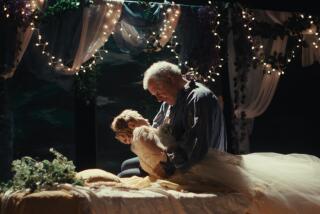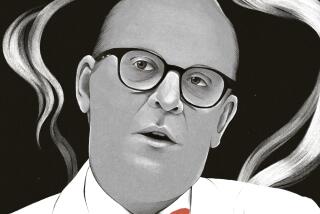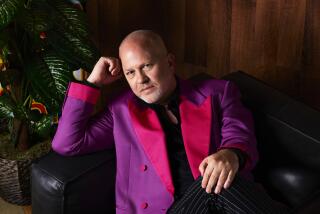Williams, Hoffman, Gandolfini: Public lives, private struggles
For those of us who follow actors and their lives, professionally or simply as fans, this has been a pretty tragic period. In the past 14 months, we’ve lost three top-tier performers startlingly before their time -- first with the passing of James Gandolfini in June 2013, then Philip Seymour Hoffman this past winter and now, of course, Robin Williams.
None was especially old, and each was very prolific. It’s telling that all three of these men have new movies coming out this fall, which, among other things, will make this one of the more melancholy movie seasons in recent memory, as big entertainments like “The Hunger Games: Mockingjay” and “Night at the Museum: Secret of the Tomb” now become unwitting reminders of death and loss.
It would be incautious to make generalizations about this trio, no matter their shared profession. People struggle, and prominent people struggle just as much as — sometimes even more than — the rest of us. Gandolfini, Hoffman and Williams each had highly individual struggles, all well documented in the aftermath of their deaths.
Still, it’s hard not to be struck by some through-lines in their stories. All three made their living projecting big personalities (it doesn’t get much bigger than Truman Capote, Tony Soprano or pretty much any of the comic roles Williams played). Yet to listen to the many who knew them, in their private lives these performers were all characterized by a kind of gentleness, soft-spoken qualities that stood in contrast to their outsized screen personalities.
Reading this moving piece about Williams by the comedian Jamie Kilstein, I was struck by that exact quality in the late actor. “There was something so warm and genuine and kind about him…he was very quiet, soft-spoken in a concerned whisper, very wise and very parental,” Kilstein writes. (One also gets the feeling watching this video of Williams with a gorilla who had learned sign language, a rare screen moment when Williams could be seen more for who he was than the personalities he chose to mimic.)
Gandolfini had a similarly gentle quality; as my former colleague Nicole Sperling touchingly recounted shortly after his death, the actor “appear[ed] a lot more vulnerable than his heft would convey” and “much sweeter and kinder than his infamous mob-boss character.”
And Hoffman was often recalled as a patient and generous person, particularly with his children. I saw this quality firsthand moderating a panel with him a number of years ago, where the full-on impersonator I had seen in his work over the years, from “Boogie Nights” to “The Master,” was belied by a much lower-key thoughtfulness (if also a keen sense of comic wryness).
Of course, plenty of big stage personalities are big personalities in real life too, and one learns early on writing about actors that it’s far too easy to draw inferences of any kind from one to the other. And yet, all three did have these struggles. Maybe their roles were actively sought out to help them conceal those quiet sides; maybe the roles simply contrasted with them. But it’s hard to deny the presence of these qualities.
Unless we knew these actors well, none of us can say how their respective compulsions took root, and what ultimately made them grow so big that they ultimately overtook seemingly everything else. What we do know is that, as much as these actors moved us with their onscreen demonstrativeness, they also had more emotional, intimate sides that were a lot closer to who they truly were--maybe, even, to who we all really are. For all the celebration of his extravagantly social public life these past 48 hours, in private Williams was a quiet, solitary man, dealing with the quiet solitary things we all deal with.
More to Read
Only good movies
Get the Indie Focus newsletter, Mark Olsen's weekly guide to the world of cinema.
You may occasionally receive promotional content from the Los Angeles Times.











